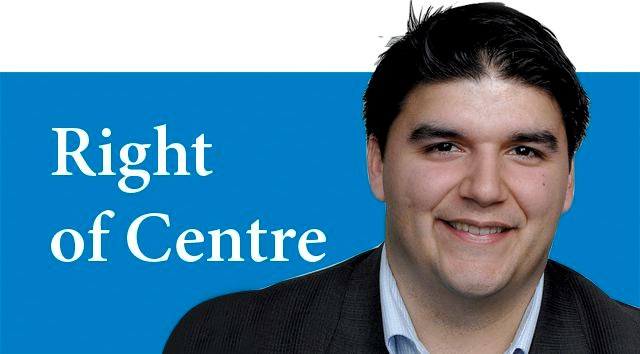Whenever I get into an argument about the European Union with my Wuppertal-born grandmother, I never fail to chant the verboten stanza of the German anthem: "Deutschland uber Alles." I admit this is in rather bad taste, especially considering that my adversary is an octogenarian who can actually remember fascists and the terrible destruction they wrought; but I always feel compelled to sing it as reminder that the EU is really just the fourth Reich.
Angela Merkel has been returned as leader of the German parliament yet again, which was to be expected. Yes, her seat count has been reduced and there are some whacky right wingers making sounds about culture and ethnocentric loyalty who placed third, taking many of her supporters away. But the days of power begotten by violence and invasion are over for the Fatherland; there is no need to invade Belgium when Berlin rules Europe through Brussels.
To get some perspective on this, we need to seriously ponder three important facts: first, that the EU came from a series of trade treaties between similar countries; second, it expanded in membership and sovereignty to the point where it affected all of continental life; and third, when it should have broken or shrunk on the merits of economic failure, let alone politics, more money was spent to keep it alive than has been lost on several of Europe's major wars.
This has not resulted in the failed economies being resuscitated, nor in any kind of real growth in either the central or peripheral members of the union. But it has lead to an increase of power and influence for German banks and the Federal Republic's leaders and politicians; it has also changed the debate around the European Union from one of economic realities to the very existence of post-war peace in Europe. The slogan "One Europe" rings some very old bells.
It is well known that Chancellor Merkel is no fan of Britain's exit from the EU and that she sees it as Germany's solemn duty to ensure that the EU survives its current convulsions - a repurposing of war guilt, which was also clearly present in her choice to give asylum to all refugees in 2015. While much more of a realist than President Obama, her rhetoric and her gestures point to a psyche that doesn't doubt her participation in this great moment of history.
To be clear, I actually cannot argue there is anyone better for the job of Chancellor or de facto leader of Continental Europe. And here I will concede that the post-war German loyalty to the EU and their incredible confidence in their abilities to utilize it effectively is certainly a change in heart backed by action that no one could have predicted on May 8, 1945.
But my gut tells me one ought not to go gently into that good night of collectivist imperialism even for the best of intentions. Europe has been reeling from a lack of cohesion since the end of the Roman Empire, yet it does not follow that another coercive force, now by backroom deals and intimidation, should be seen as the salvation of a continent. Europe's deep history and colourful peoples deserve better than to be dominated by unaccountable statism.
I have no concrete solutions to this problem, just the observation that Medieval Europe's Christendom seemed to be the most diverse in cultures and peoples while united in faith and purpose; an odd match considering the lack of nation-states, common languages and reliable transportation all year round. Certainly the future of Europe cannot lie solely in the material and secular, as the 20th century clearly proves this leads only to untold bloodshed and misery.
Whatever may become of Merkel, her government, and the EU as she continues into her 12th year of leadership is anyone's guess. What I do know is that regardless of the official policy on Germany's anthem, Europe's 21st century reality has long been "Deutschland Uber Alles."



